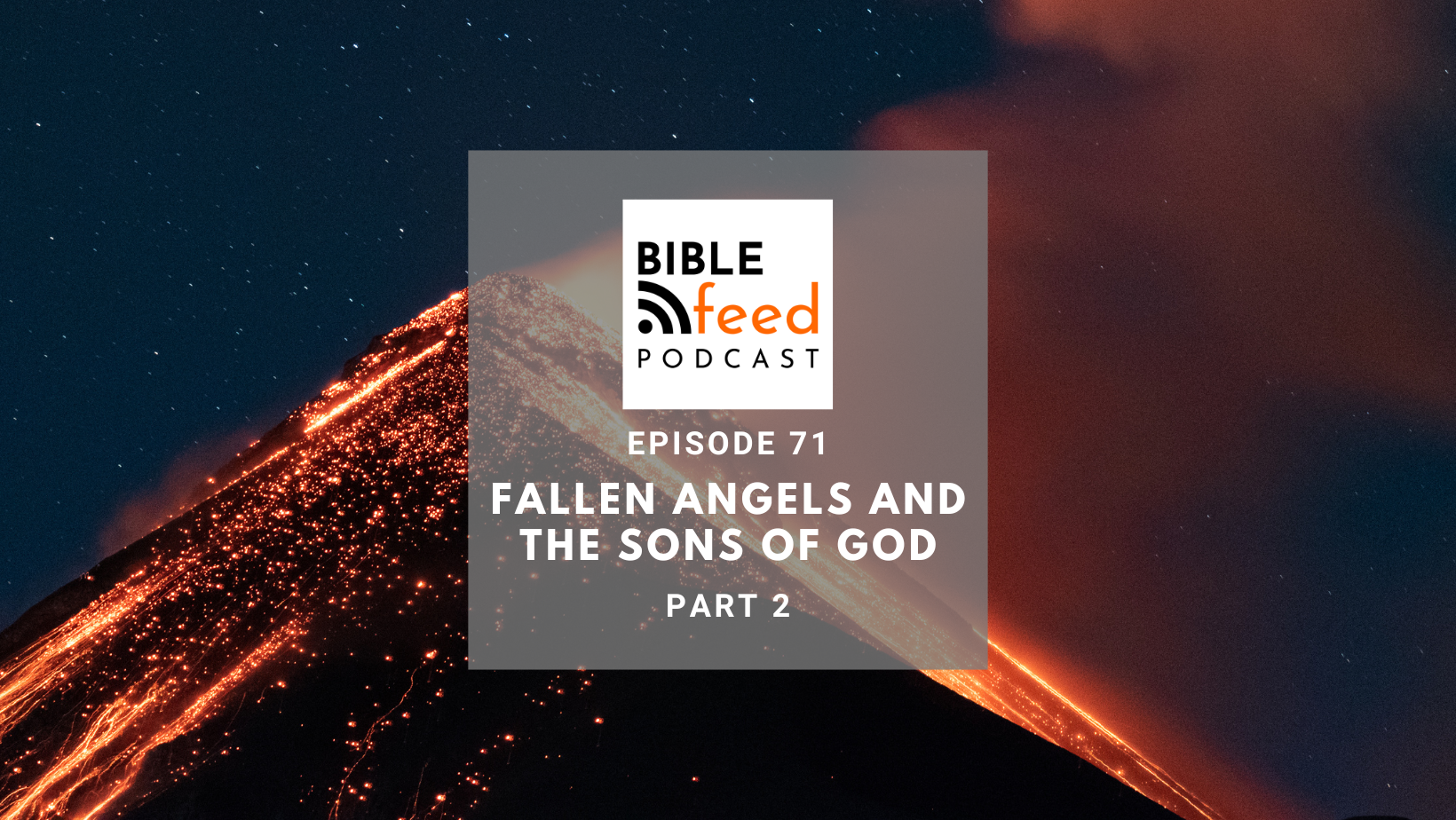Episode 71: Fallen angels and the sons of God – Part 2
Paul and Dan continue their exploration of the Divine Council worldview by looking at claims made about verses in Deuteronomy 32, the introduction to the book of Job and Psalm 82. In summary, they conclude that while it is useful to understand the cultural background to the text of the Bible and the phrase “the Sons of God”, it is also important to avoid being distracted by relatively speculative ideas from the main thrust of the Bible message – that Jesus died to reconcile humans to God. Let us know what you think!
Show Notes
After a brief recap covering Part 1, Dan and Paul turn to Deuteronomy 32, which is one key passage that includes the phrase “Sons of God”.
Who are the Sons of God?
Deuteronomy 32:8-9 contains one of the most influential passages that is used to articulate the Divine Council worldview. Reading the passage through, Paul and Dan consider the options for who the “Sons of God” could be referring to.
“When the Most High gave to the nations their inheritance, when he divided mankind, he fixed the borders of the peoples according to the number of the sons of God. But the LORD’s portion is his people, Jacob his allotted heritage.”
Deuteronomy 32:8-9
Assuming that “the Sons of God” in this passage refers to angelic beings, it is sometimes claimed that God gave these divine beings control over different nations of mankind. But Paul and Dan turn to the context and see that the language of sons and daughters of God in the very same chapter is used to describe the people of Israel, (Deuteronomy 32:17-19, Deuteronomy 32:43). They also notice other passages that are clearly describing Israel as the “sons of God”, (Isaiah 1:1-3). In summary, they conclude that this passage simply doesn’t say anything about divine beings, fallen or otherwise, that were given territories or people groups to rule over.
Who are the Sons of God in Job?
Dan and Paul turn to the book of Job and discuss the genre of the book as wisdom literature; an exploration into the purpose of suffering and how to understand God in the face of terrible evil. The speeches throughout the book are clearly poetic and not to be considered as ‘video camera footage’, and it’s the same at the beginning of the book. The first two chapters are stage-setting and they include a description of God’s heavenly host with one of the “sons of God” performing the role of the “adversary” – the Satan. For more on Satan in Job, Dan suggests Dr John Walton’s work which shows that the Satan is very clearly not the malevolent being that is popularly taught.
Recognising that the Satan at the beginning of the book of Job doesn’t bear any resemblance to the orthodox ‘devil’, they consider this (and the other reference to “sons of God” – Job 38:7) as poetic ways to depict God with his heavenly host. But there is not real hint of a council or that this should even be understood as the way that God literally operates.
Is Psalm 82 about the Divine Council?
Turning to the final key supporting passage for Dr Michael Heiser’s Unseen Realm, Dan and Paul unpack Psalm 82. They find a psalm that may have hints of a pantheon in the language used, but which is used to judge the evil perpetrated by human rulers, as explained by Jesus in John 10:34. It’s a theme that runs through many of the ‘fallen angel’ passages – they turn out to be describing proud humans setting themselves up to be equal with God. Indeed, this theme is consistent with the whole biblical story from the very first narrative of Adam and Eve grasping at being “like God” (Genesis 3:5).

Is the Divine Council worldview supported in scripture?
Dan and Paul conclude by recognising the thin support that there is for much of the claims that lie at the heart of the Divine Council worldview. They discuss how there is indeed a wealth of helpful information from the ancient Near East culture at the time of the Old Testament. Any inclusion of these ancient motifs of a pantheon of gods or fallen angelic rulers is used ironically or in parodies against proud human hearts. That’s the real focus of the biblical narrative, and its the story that Jesus fits into.
Seeing fallen angels in all these sections of scripture can be very distracting to the centrality of Jesus Christ and his saving work, which is the point Dan and Paul conclude on.
Related resources
Other episodes in the series on the devil, Satan and demons:
- Episode 63: Introducing the Devil and Satan – Part 1
- Episode 66: Getting to know the Devil and Satan – Part 2
- Episode 67: Demons and the Devil and Satan – Part 3
- Episode 70: Fallen angels and the Sons of God – Part 1
Many other episodes are related to this topic in different ways. For example, our discussion about why Jesus died is helpful to understand that centrality of the death of Jesus and how it relates to human rebellion, not fallen angels.







